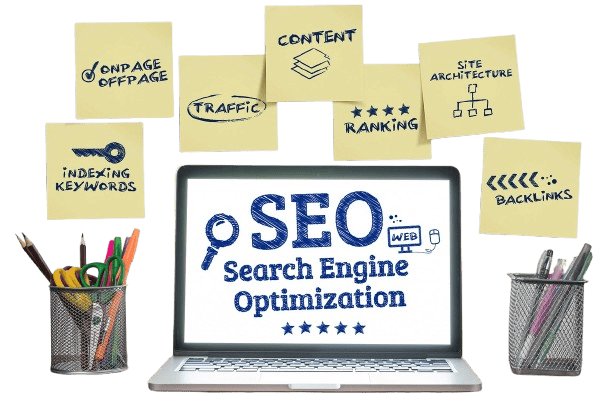Choosing the Right Digital Marketing Service Provider Online In today’s digital age, businesses can no longer afford to overlook the power of online marketing. With billions of people actively engaging with the internet, the potential for growth, brand visibility, and customer acquisition is limitless. However, navigating the complexities of digital marketing can be overwhelming without the right expertise. This is where a Digital Marketing Service Provider Online becomes essential. At dmsprovider.com, we specialize in offering tailored digital marketing solutions that cater to businesses of all sizes. Whether you are a small startup or an established enterprise, our expert team can help you harness the full potential of digital marketing to elevate your brand, increase website traffic, generate leads, and ultimately, boost your revenue. In this blog post, we will discuss what a digital marketing service provider online is, why your business needs one, and how dmsprovider.com can be your trusted partner in this ever-evolving digital landscape. What is a Digital Marketing Service Provider? A digital marketing service provider online is a company or agency that specializes in offering a range of services designed to help businesses improve their online presence, attract more customers, and drive better business results. These services typically encompass: A digital marketing service provider online brings a wealth of knowledge, experience, and tools that can significantly enhance your marketing efforts and save you time and money in the long run. Why Your Business Needs a Digital Marketing Service Provider Online As the digital landscape continues to evolve, staying ahead of your competitors and effectively reaching your target audience requires more than just traditional marketing strategies. Digital marketing is multifaceted and dynamic, meaning it is crucial to partner with an expert team that understands the latest trends, technologies, and tools. Here are several reasons why your business needs a digital marketing service provider online: 1. Expertise and Experience Digital marketing involves numerous strategies and channels, each requiring specific knowledge and expertise. A professional digital marketing service provider online brings years of experience to the table. Whether it’s mastering SEO or running complex PPC campaigns, an expert provider knows what works and what doesn’t, ensuring your marketing strategies are optimized for success. 2. Cost-Effective Strategy While it may seem tempting to handle marketing in-house, doing so can be expensive and time-consuming. Hiring an internal team of digital marketing professionals requires significant investment in salaries, training, and resources. On the other hand, outsourcing to a digital marketing service provider can save you money by giving you access to skilled professionals at a fraction of the cost. 3. Up-to-Date Knowledge Digital marketing is constantly evolving. New platforms, algorithms, and trends emerge all the time, and staying on top of these changes requires constant monitoring and adaptation. A reputable service provider like dmsprovider.com stays ahead of the curve and is always adapting strategies to align with the latest industry developments. 4. Focus on Core Business Activities By outsourcing your digital marketing to a dedicated service provider, you free up valuable time and resources that can be focused on your core business functions. Rather than worrying about the nuances of SEO or crafting the perfect social media ad, you can focus on delivering quality products and services to your customers. 5. Data-Driven Decisions One of the key advantages of digital marketing is the ability to track, measure, and analyze performance. A professional provider uses analytics tools to gather valuable data, which can be used to adjust campaigns in real-time for maximum results. With accurate reporting, you’ll have a clear understanding of what strategies are driving growth and which need optimization. 6. Scalability and Flexibility Whether you’re launching a new product, expanding to new markets, or running seasonal campaigns, a digital marketing service provider can scale its efforts to meet your specific needs. As your business grows, your digital marketing service provider online can easily adjust strategies and tactics to support your evolving objectives. How dmsprovider.com Can Help Your Business At dmsprovider.com, we specialize in delivering customized digital marketing solutions that drive measurable results for businesses of all industries. Our team of experienced professionals is committed to helping you build a robust online presence, attract your target audience, and convert them into loyal customers. 1. Comprehensive Digital Marketing Solutions We offer a wide range of digital marketing services designed to address all aspects of your online presence. Whether you’re looking to improve your website’s SEO ranking, run a successful PPC campaign, or create compelling content, our team has the expertise to deliver results across all platforms. 2. Tailored Strategies for Your Business At dmsprovider.com, we believe that there is no one-size-fits-all approach to digital marketing service provider online. Every business is unique, and that’s why we take the time to understand your specific goals, challenges, and audience. Based on this information, we develop a tailored digital marketing strategy that maximizes your results. 3. Transparent Reporting and Analytics We understand the importance of transparency in the digital marketing process. Our clients receive detailed reports on campaign performance, including key metrics such as traffic, conversions, and ROI. This data allows us to make informed adjustments to campaigns, ensuring that we’re always working toward your business objectives. 4. Expert Team of Professionals Our team at dmsprovider.com consists of seasoned digital marketing service provider online professionals who have extensive experience in various areas of online marketing. From SEO specialists and PPC experts to content creators and social media managers, we work together to create cohesive strategies that drive growth. 5. Cutting-Edge Tools and Technologies We leverage the latest tools and technologies to deliver the best possible results. Whether it’s using AI-driven SEO tools, advanced analytics software, or sophisticated social media management platforms, we have the resources to stay ahead of the competition. 6. Affordable Packages At dmsprovider.com, we believe that effective digital marketing should be accessible to businesses of all sizes. We offer flexible pricing plans to ensure that our services fit within your budget, without compromising on quality or results. 7. Proven Track Record Our success



